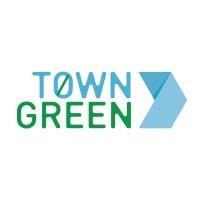Oceanographic Institution's Ocean Alkalinity Project
Date and Time
Tuesday Feb 11, 2025
6:00 PM - 7:00 PM EST
Location
Online via Zoom
Register Here
Fees/Admission
Free but registration required
Website
Contact Information
Maureen Aylward-Bover
Send Email
Description
TownGreen is pleased to host a webinar with the Woods Hole Oceanographic Institution for an informational presentation and discussion on Tuesday, February 11th from 6:00 -7:00 PM. The hour-long webinar will include a 30-minute informational and educational presentation followed by a 30-minute Q&A/discussion session.
Download LOC-NESS Informational One Pager
Adam Subhas, Associate Scientist at the Woods Hole Oceanographic Institution, will lead the discussion. He is the lead principal investigator (PI) of an interdisciplinary research project investigating the effectiveness and environmental impacts of a potential ocean-climate change mitigation approach known as ocean alkalinity enhancement.
Register for the Zoom meeting: https://bit.ly/TGWoodsHole
BACKGROUND
The LOC-NESS project (short for Locking Ocean Carbon in the Northeast Shelf and Slope) is a research effort that addresses the need identified by the US Federal Government and the UN’s Intergovernmental Panel on Climate Change to rapidly advance research into marine carbon dioxide removal (mCDR) approaches, such as ocean alkalinity enhancement (OAE), a potential type of mCDR that de-acidifies sea water while storing carbon away from the atmosphere. As a supplement to emissions reductions, OAE may help to mitigate the effects of climate change on the environment and society.
PROJECT GOALS
The project is carefully designed to answer essential questions about the effectiveness and environmental impacts of OAE by:
- Evaluating how regional ocean conditions and human activities would interact with OAE
- Conducting realistic laboratory experiments that assess the biological impacts and engineered safety of OAE
- Designing and conducting a small-scale, highly monitored field trial of alkalinity enhancement
- Using an ocean model to expand on field trial data
- Engaging with communities who care about the potential impacts of OAE on regional waters
LOC-NESS includes a proposed field experiment in federal waters off the coast of Massachusetts. The experiment is carefully designed to minimize its impact on marine life and the environment, while still providing meaningful data. Liquid alkalinity in the form of sodium hydroxide will be dispersed into the turbulent, rapidly mixed wake of the dispersal vessel. The resulting 0.19 square mile (approximately 124 acre) ocean patch will exhibit a slightly elevated pH of a few tenths of a unit, below the pH 8.5 water quality criteria for aquatic life. A monitoring vessel will measure biological and chemical characteristics during, and for at least seven days after the release, to constrain the immediate and longer-term impacts on ocean biology and carbon dioxide uptake from the atmosphere.
LOC-NESS IS NOT A PATHWAY TO OR AN ENDORSEMENT OF OAE. The project is not selling carbon credits and is not participating in the carbon market. Instead, the project is made up of scientists, engineers, and communicators who are committed to a transparent, rigorous, scientific evaluation of OAE to guide the formation of fact-based regulation and policy.
Lead presenter:
Adam V. Subhas
Associate Scientist
Department of Marine Chemistry and Geochemistry
Woods Hole Oceanographic Institution
Subhaslab.whoi.edu


